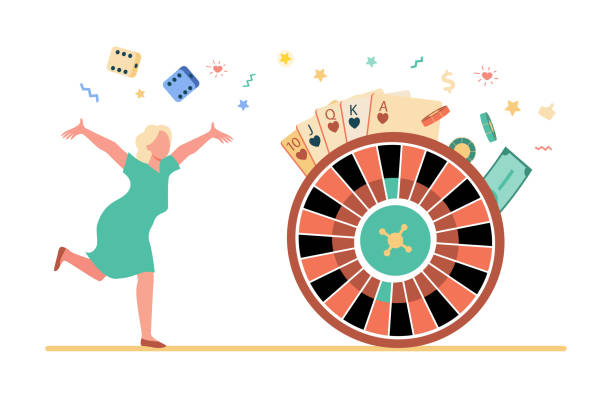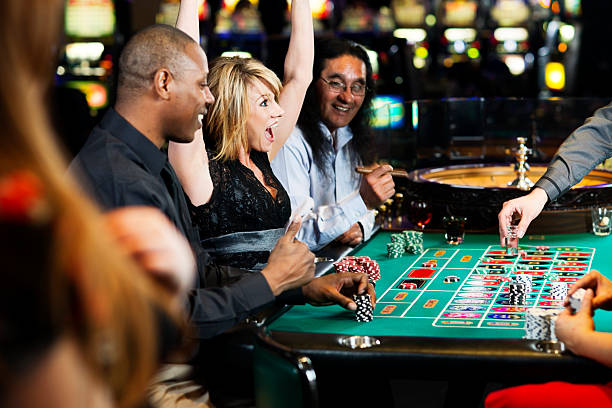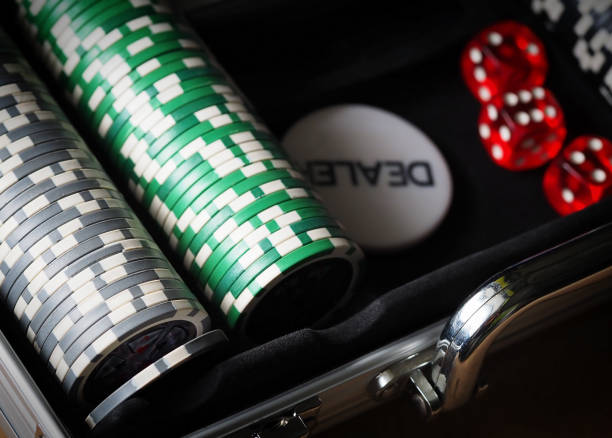
Australian casino online play real money provide an extensive array of gaming opportunities, including online slots, table games, sports betting and specialty games. This range of options, combined with their convenience, has made them a popular selection amongst players. The following five facts regarding Australian real money casinos may be of particular interest:
- Online Casinos in Australia Are Regulated – All reputable real-money real money casinos Australia have been regulated by the country’s chief gambling regulator, the Australian Communications and Media Authority (ACMA). This ensures that all payments made through these sites are secure and that any disputes are resolved quickly. There is also extensive consumer protection available through the ACMA licensing process.
- Variety of Payment Methods Available – Players at real money casinos Australia have access to a range of payment methods, such as credit cards, debit cards, eWallets, prepaid cards, bank transfers and Bitcoin. All data is securely encrypted to guarantee the protection of players’ personal information. Additionally, the use of Bitcoin as a payment option furnishes an additional layer of security for transactions.
- Huge Selection of Games Available – Most online casinos offer hundreds if not thousands of gaming options with new ones being added regularly as providers develop exciting new titles or variants on classic favourites like roulette or blackjack! From progressives’ jackpots to Live Casino where you can play casino online for real money against professional dealers there’s something for every taste out there
- Mobile Compatibility Is Key – Today’s technology means that most sites now have mobile compatibility allowing players to game anytime, anywhere using their smartphone or tablet device whether it’s iOS or Android based phones/tablets they use! With this flexibility not only do people get access to their favourite games more easily but many will also benefit from special promotions offered only on mobile devices too!
- Fast Cash Outs – After winning big, nobody wants to wait around for their hard-earned money. Most leading online real money casinos Australia offer prompt cash out services, enabling efficient transfer of funds with minimal effort. These services ensure that you are able to access your winnings without having to wait for days or weeks for them to be deposited into your bank account.
Discovering the Best Aussie Online Casino Experience
In the vast landscape of online casinos, finding the best Aussie online casino can be akin to discovering a hidden gem amidst a sea of options. With an abundance of choices catering to Australian players, it’s crucial to discern the superior platforms that offer not only a thrilling gaming experience but also prioritize safety, fairness, and customer satisfaction. In this guide, we delve into the key factors that define the best Aussie online casinos, helping you navigate through the virtual realm of excitement with confidence.
Factors to Consider When Choosing the Best Aussie Online Casino
When selecting the ideal online casino tailored to Australian players, several essential factors come into play. Firstly, ensuring the platform is licensed and regulated by reputable authorities is paramount. This guarantees adherence to strict standards, safeguarding players’ interests and funds. Additionally, evaluating the game selection is crucial, with top-tier casinos boasting an extensive array of titles, including pokies, table games, live dealer options, and more. Moreover, prioritizing platforms that offer generous bonuses, secure banking methods, and responsive customer support further enhances the overall gaming experience.
Unveiling the Pinnacle of Online Gaming: Best Aussie Online Casinos Reviewed
Embark on an exhilarating journey through the top-rated Aussie online casinos, meticulously evaluated to provide players with unparalleled entertainment and rewards. From renowned industry giants to hidden gems, each recommended platform excels in delivering premium gaming experiences tailored to Australian preferences. Explore captivating themes, innovative features, and lucrative promotions, all designed to elevate your online casino adventure to new heights. With our comprehensive reviews, discovering the pinnacle of online gaming has never been more accessible.
Elevate Your Gaming Experience: Tips for Maximizing Fun and Wins
Beyond selecting the best Aussie online casino, optimizing your gaming experience entails strategic approaches and savvy techniques. Whether you’re a seasoned player or a newcomer, adopting prudent bankroll management practices is essential for prolonged enjoyment and sustainable wins. Additionally, familiarizing yourself with game rules, strategies, and odds empowers you to make informed decisions, increasing your chances of success. Furthermore, seizing promotional offers, participating in tournaments, and embracing responsible gaming habits contribute to a fulfilling and rewarding journey in the online casino realm.
Embrace the Thrills of Online Gaming with the Best Aussie Casinos
Immersing yourself in the electrifying world of online gaming is a thrilling endeavor, especially when guided by the best Aussie online casinos. By prioritizing essential factors such as licensing, game variety, bonuses, and support, players can embark on a captivating journey filled with excitement, rewards, and endless possibilities. Whether you’re seeking adrenaline-pumping pokies, immersive table games, or interactive live dealer experiences, the top-rated Aussie casinos featured in our guide promise unparalleled entertainment and satisfaction. Embrace the thrills, unleash your inner champion, and elevate your gaming experience today!
Popular Online Casino Games in Australia
Australia is home to some of the most popular new online casino Australia real money games in the world. From exciting slots, live dealer tables and even sports betting, Australians have access to a wide variety of virtual gaming options. This article will explore some of the most popular real money online casino games available in Australia and what makes them so enjoyable for players.
| Slots | Slots are perhaps one of the most popular new online casino Australia real money games available in Australia. With hundreds of different variations, Australian players can choose from a wide selection of titles from classic three-reel fruit machines to modern video slots with multiple paylines and high-quality graphics. Each slot game tries to provide its own unique spin on gameplay while offering up big money prizes which makes them very attractive for avid gamers everywhere! |
| Roulette | Roulette has long been a staple at land-based casinos all over the world and many Australians find themselves wanting to try their luck at an online version as well! Roulette combines elements of chance with strategy which can make it both fun and potentially rewarding for experienced players who understand how odds work in their favour when playing this classic table game. |
| Blackjack | Blackjack is another popular choice amongst seasoned Aussie gamblers looking for a challenge when it comes to virtual gaming. This card game pits yourself against the dealer with each round requiring strategic choices based on understanding probabilities and your opponents’ moves if you want to come out ahead every time you play casino online for real money! Experienced blackjack players often seek out games that offer profitable side bets such as insurance or perfect pairs which are typically only found at major local or international casinos sites catering to Australian customers specifically so be sure research before signing up anywhere else! |
| Baccarat | Baccarat is a classic table game that has been played in traditional gambling establishments for centuries and continues to remain popular among virtual gaming enthusiasts today. This game is straightforward to learn the fundamentals of, but also provides numerous advanced tactics that can be utilized, resulting in a stimulating and gratifying experience. Its union of simplicity and complexity makes it an ideal selection for both new and seasoned players. |
How To Win in Online Casino Game

Are you a veteran gambler interested in exploiting the plentiful returns available from the web-based gambling industry? If so, you have come to an optimal source! Australia is renowned as a haven for some of the most highly esteemed casino online play real money, providing a comprehensive range of games suitable for players of all competency levels. With an effective approach and a smattering of luck, you can effortlessly succeed at your chosen game and reap sizable winnings! Here are our leading recommendations for achieving success in Australian online new online casino Australia real money gaming.
- Familiarize Yourself with the Regulations: Prior to engaging in any game, it is imperative that you have a comprehensive comprehension of its operational mechanics. Devote some time to researching the rules, as well as any tactics or guidance from other proficient players. This will help ensure that you know what’s expected before investing real money into playing.
- Set Bankroll Limits: It’s crucial to keep track of your bankroll when gambling so that you don’t overspend or get too caught up in trying to recoup losses. Set yourself limits ahead of time and stick with them – this will help prevent any costly mistakes while playing at one of Australia’s premium online Australian real money casinos!
- Choose Games Wisely: Not all games were created equal – even if they look identical on their surface level! Different games come with different payout rates and house edges, which can greatly affect your chances of winning big bucks at an online casino real money Australia site. Do research beforehand to find out which game has better odds for success before getting started!
- Make Use Of Bonuses: Most Australian sites offer bonuses such special offers for new customers or loyalty rewards for returning players – use these promotions wisely by taking advantage of bonus cash offered through deposit matching funds and free spins opportunities available from time-to-time across select virtual machine titles. This way, your overall investment into gaming may be significantly lower than originally anticipated!
Bonuses and promotions
Online real money casino in Australia offers a variety of bonuses and promotions to players. These rewards encourage players to keep playing, as well as enticing new customers to join in the fun. From matched deposits and free spins, to bonus wheel spins and loyalty rewards, there’s no shortage of ways for Australian players to get more out of their online gambling experience.
Matched Deposit Bonuses: Matched deposit bonuses are offered when you make your first deposit into an online casino account. This bonus typically matches your initial deposit up 100%, effectively doubling the amount of money you have available to play casino online for real money with on your favourite games. For instance, if you deposit $50 into your account, the casino will give you another $50 as a bonus. You can then use these funds on any game of choice – slots or table games like roulette or blackjack – giving you more opportunities for big wins!
Free Spins: Free spins are one of the most popular forms of bonuses amongst slot fans Down Under. By signing up with a casino real money Australia site registered in Australia, such as Fair Go Casino or EmuCasino for example, players can receive dozens or even hundreds of free spins which they can use at select pokies from the portfolio without spending any money from their bankrolls upfront!
Bonus Wheel Spins: One type of promotion that is gaining popularity among Aussie punters is known as ‘bonus wheel’ offers whereby simply by spinning this virtual wheel they stand the chance win amazing prizes such cash-backs throughout extra credits and free rounds at popular pokies machines like Book Of Dead™ and Starburst™; exciting giveaways like iPhones; tailored trips abroad etc.
Loyalty Rewards: Loyalty rewards programs are specifically designed to incentivize and reward returning players. As the name implies, when a person plays real-money games at an online casino play real money, they accumulate points that contribute to their overall loyalty level. As members climb the ranks through the hierarchical levels (bronze, silver, gold, etc.), they accumulate more points that can be redeemed for special bonuses and other incentives. With each level reached, players gain access to additional benefits such as special promotions and VIP treatment.
Payment Methods
The exponential growth of the online casino real money Australia gaming industry in Australia since 2017 has led to an influx of gambling sites, providing patrons with a broad range of payment options for deposits and withdrawals. This article will analyse the payment methods accessible to Australian gamers who wish to engage in online casino gaming.
- Credit Cards: Credit cards are a popular means of funding your real money online casino account, as they offer convenience and security. Most online gaming platforms accept Visa, MasterCard and American Express credit cards for deposits and withdrawals from clients’ accounts. Nevertheless, certain financial institutions may not process transactions that are deemed unorthodox or unauthorized.
- Debit Cards: Just like with credit cards, debit cards can also be used to make deposits into an online casino play real money account in Australia. They usually carry lower fees than credit cards do and allow you to withdraw funds directly into your bank account without any middleman involved in the process. The most common debit card accepted at Australian casinos is Visa Electron but other brands such as Maestro or Solo may also be offered depending on the site you’re playing at.
- E-Wallets: E-wallets are becoming increasingly popular when it comes to depositing funds into your online casino play real money accounts due to their speed and reliability while remaining secure during transactions made over the internet. Popular e-wallet services include NETELLER, Skrill (Moneybookers), PayPal and EcoPayz which can all be used by Australian players for making quick payments into their accounts with no fuss whatsoever!
- Prepaid Cards/Vouchers: Prepaid vouchers such as Ukash provide users with another easy way of depositing funds into their accounts without having to input any personal information like credit/debit card details or e-wallet address information. All you need is a voucher code which you simply enter onto the cashier page.
Customer Support

Online Australian real money casinos are known for their excellent customer service and support. From reliable deposits to helpful customer representatives, players from all around the world can enjoy a safe and secure gaming experience at any of the top Australian online casinos.
When it comes to customer service, a variety of options are at one’s disposal. Numerous Australian real money casinos offer round-the-clock live chat support, enabling players to promptly obtain responses to their inquiries without having to endure on-hold times or participate in email exchanges. Furthermore, players can take advantage of toll-free telephone lines if they prefer speaking with a representative directly, or alternatively ask queries via social media outlets such as Twitter and Facebook.
In addition, many Australian online real money casino feature comprehensive Frequently Asked Questions (FAQs) sections to provide players with responses to common inquiries regarding registration, banking, bonus offers, and other related topics. If you’re stuck and need additional help beyond these resources, a friendly customer service representative will be happy to help you via chat or phone call during normal business hours.
Players can also count on player protection services when it comes to online gambling in Australia – Licensing bodies like eCOGRA regulate each casino online play real money operations ensuring a fair gaming experience for everyone involved. This includes auditing games regularly for fairness check-ups as well as providing dispute resolution when needed.
Overall, Australian free online casino real money customers are provided with plenty of opportunities for assistance should they run into problems during their time playing at an online casino site – whether it is regarding technical issues, banking or other aspects related forms of help is just one click away!
Advantages To Play In Australian Online Casinos
Gambling at an Internet-based free online casino real money in Australia can be highly gratifying. There are numerous benefits to playing at a virtual casino, such as expediency, a plethora of game options, and the capacity to earn actual currency. Let’s take a closer look at why you should play at an online casino in Australia.
The primary benefit of playing at an online real money casino is the convenience factor. Players can access their preferred games from any location, with a few clicks or taps on their mobile device. Moreover, many digital casinos provide bonuses and incentives for frequent deposits into user accounts. This means you stand to gain extra cash for playing your favorite games!
Another great advantage of playing at a free online casino real money is the vast selection of different games available to players. From traditional table games like blackjack or roulette, to more complicated video slots and scratch cards – there is something for everyone no matter what type of game they prefer! You can even play live dealer versions where real-life dealers operate the tables for added realism and excitement! With so many possibilities on offer, it’s easy to find something that suits you perfectly down to the ground.
The final advantage we’ll mention here is that when you play in an Australian real money online casino, you always have the potential chance to win big sums of money if luck goes your way! It might not be as likely as when compared with land-based casinos but winning large amounts while enjoying yourself comfortably from home remains very possible – even likely depending how much time you spend there!









